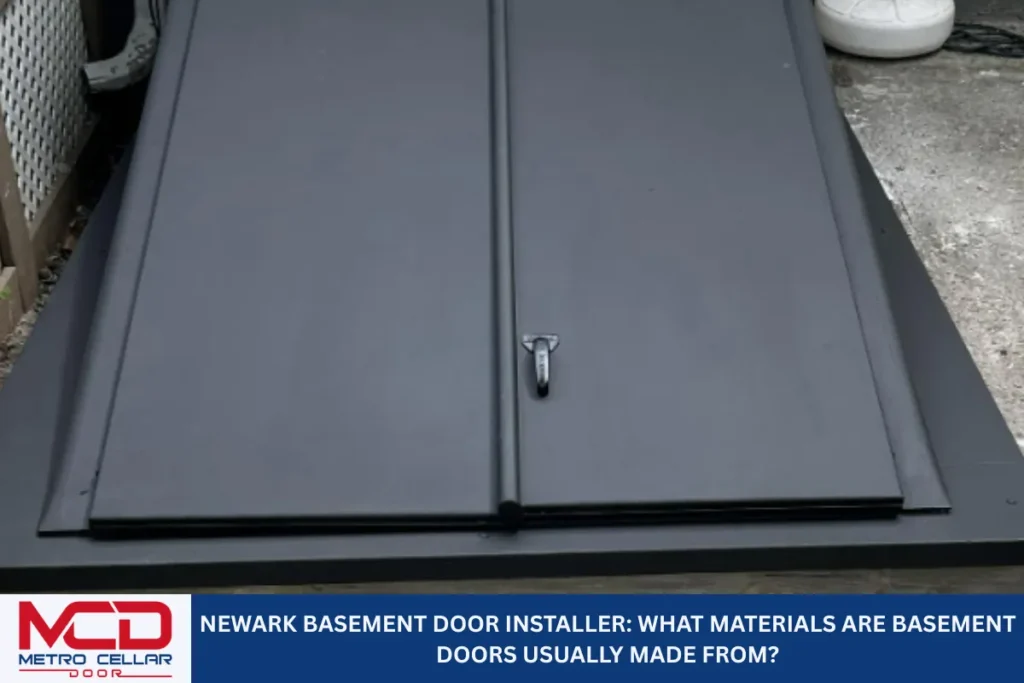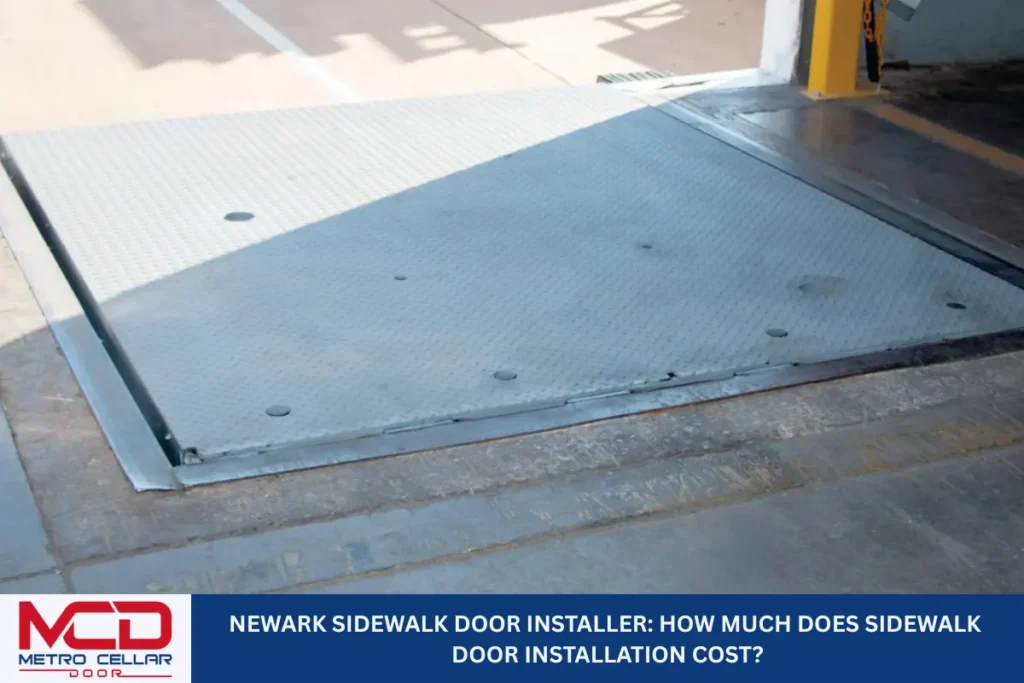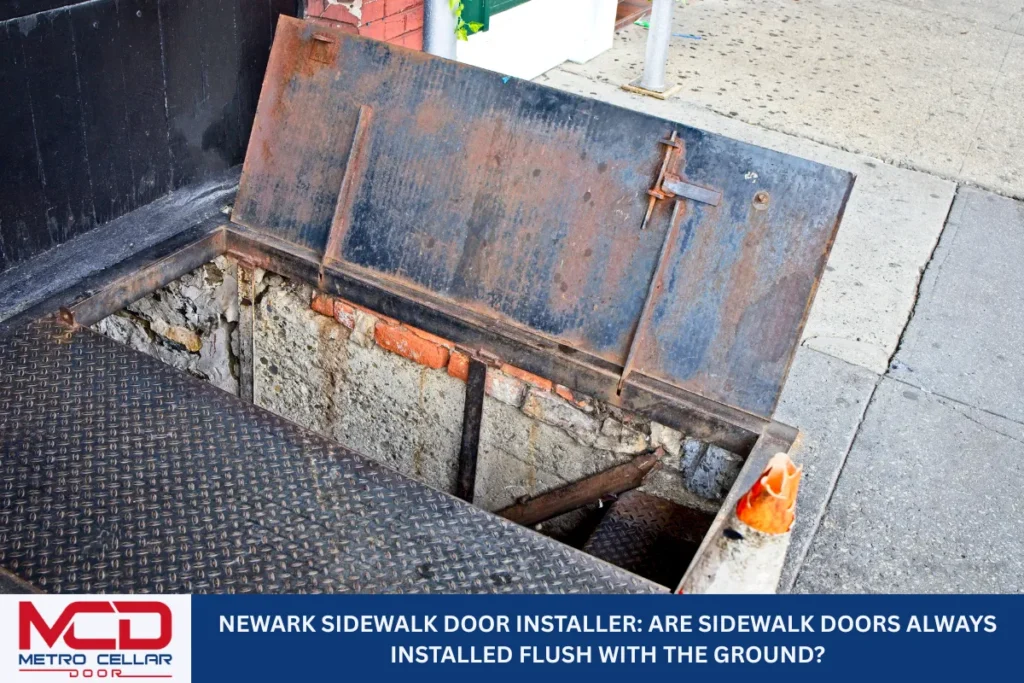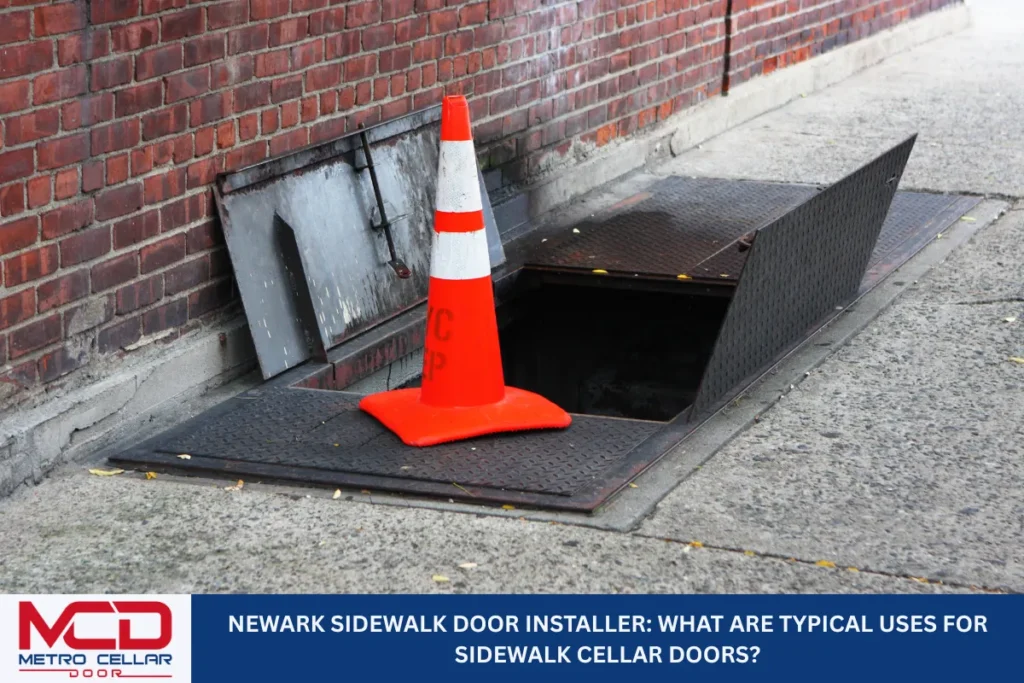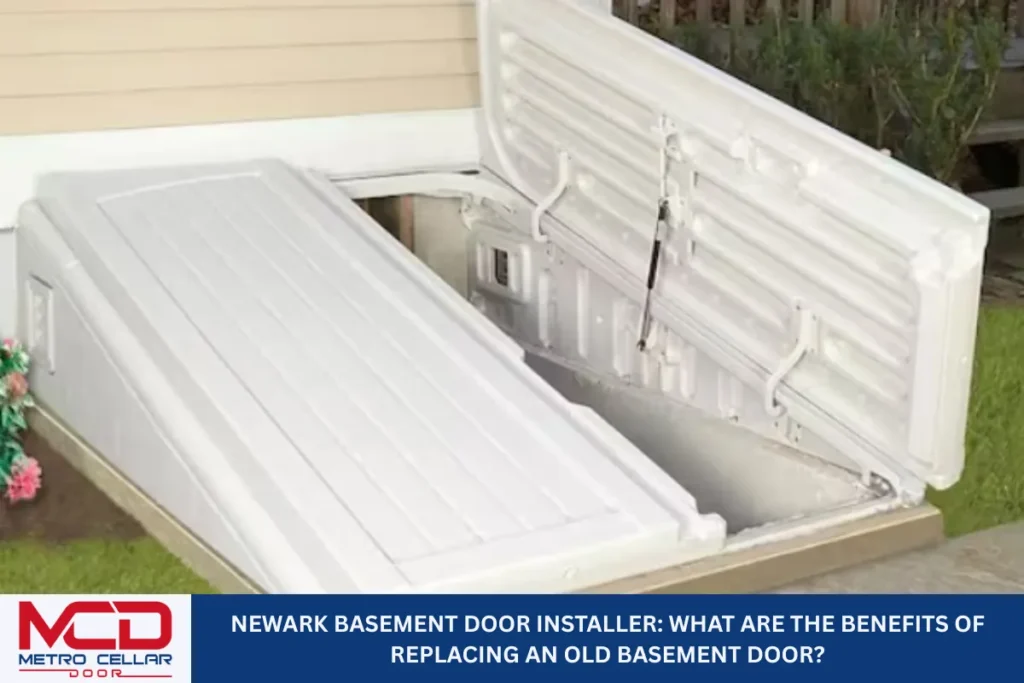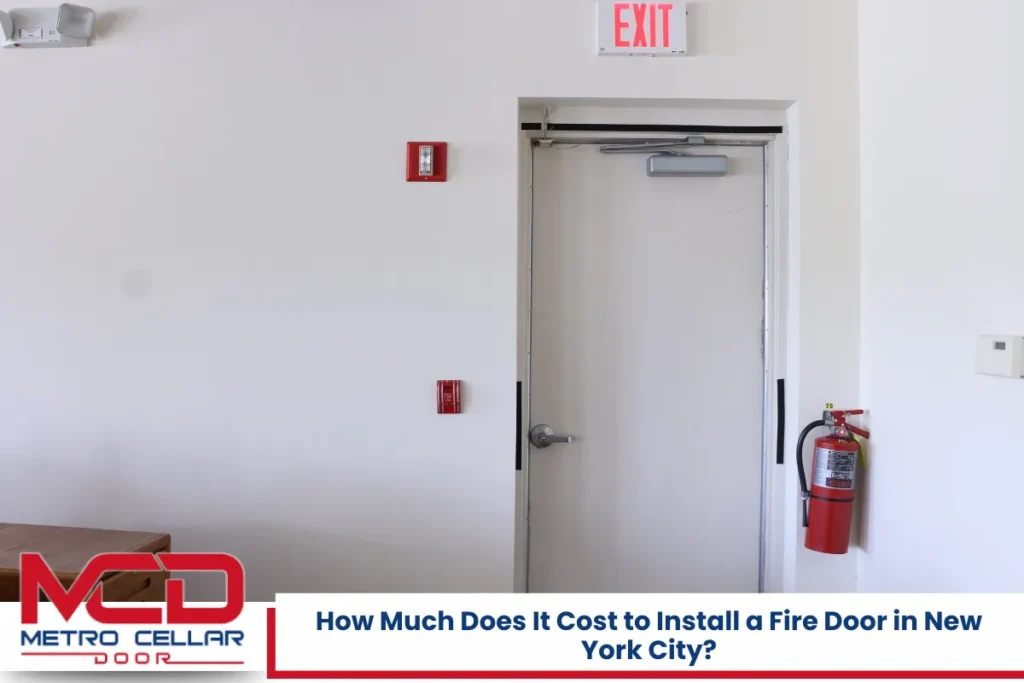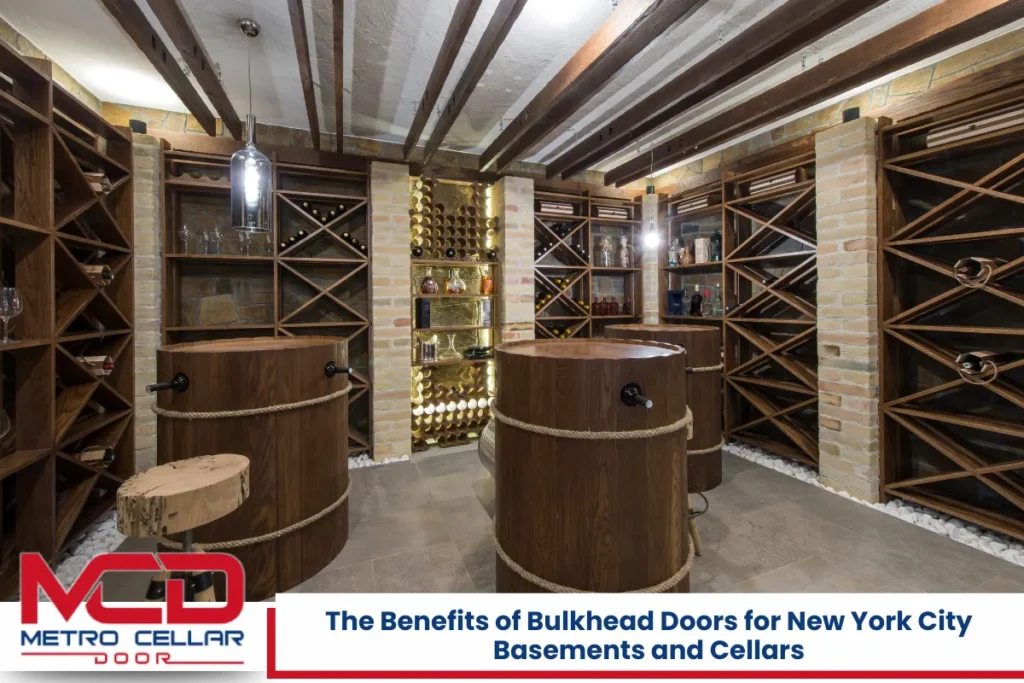Choosing the right material for a basement door matters more than most people think, especially for homeowners hiring a basement door installer in Newark. The material affects how well the door withstands heavy rain, snow buildup, temperature shifts, and even salty street water splashed up during winter. Not only does it affect the appearance and lifespan of the door, but it also determines the amount of maintenance and care required over the years. This guide explains all the common materials used in basement doors and what makes each one suitable—or not—for Newark’s conditions.
Understanding the Purpose of a Basement Door

A basement door is not just an entry or exit—it plays a vital role in protecting your home’s foundation, preventing water intrusion, and providing safe access to lower levels. Many homes in Newark have exterior basement entries, either at ground level or below grade, which require doors that can withstand moisture, temperature swings, and frequent use.
Beyond protection, basement doors must also meet certain safety and building standards. They should open smoothly, seal tightly, and remain functional for decades without rotting, corroding, or warping. The material you choose can either support or hinder all of these goals, making it a crucial decision in any installation project.
Key Considerations Before Choosing a Basement Door Material
Before diving into the materials, it’s helpful to understand the local conditions that can affect your door’s performance. Newark’s climate includes cold, snowy winters and warm, humid summers. Roads are often salted, and older homes may have drainage issues or shifting foundations. These factors make it essential to select a material that resists corrosion, moisture damage, and expansion or contraction due to temperature changes.
Another consideration is the purpose of the basement. Is it a storage area? A finished living space? A laundry room or utility area? The use of the space can determine whether you require a basic, heavy-duty door or a more insulated and aesthetically pleasing one.
Lastly, building codes may also influence your decision, especially if the basement has sleeping quarters or living areas that require emergency egress. Your basement door installer should be familiar with all local Newark regulations to make sure the installation is fully compliant.
Steel Basement Doors: Strength, Security, and Durability

What Is Steel and How Is It Used in Basement Doors?
Steel is one of the most widely used materials for basement doors. It is a strong, heavy metal made primarily of iron and carbon, often coated with a protective finish, such as galvanization or powder coating. This makes the surface more resistant to rust and general wear and tear.
In Newark, steel is commonly used for sloped doors (also called bulkhead doors) and flat sidewalk cellar doors. These are usually installed to provide exterior access to basements and must handle foot traffic, rain, and freezing conditions.
Benefits of Steel Basement Doors
- High strength and security: Steel is extremely difficult to break or damage, making it ideal for safety and theft prevention.
- Durability in harsh weather: When properly coated, steel resists Newark’s snowy winters and salted sidewalks.
- Long lifespan: Steel can last for decades with routine maintenance.
- Customizable options: Powder-coated steel doors are available in a variety of colors and finishes to enhance visual appeal.
Things to Watch Out For
Although durable, steel can rust over time if its protective coating is scratched or worn away. That’s why it’s essential to inspect the surface annually and touch up the paint when necessary. Additionally, since steel is heavy, doors should be installed with high-quality hinges and support systems to prevent sagging or sticking.
Aluminum Basement Doors: Lightweight and Corrosion-Resistant

What Is Aluminum and Why Is It Popular?
Aluminum is a naturally corrosion-resistant metal that’s lightweight and doesn’t rust. It’s widely used in areas where exposure to moisture, salt, and chemicals is common. Aluminum is often the material of choice for sidewalk cellar doors in Newark, especially where the door will be flush with concrete or exposed to snowplow spray.
Advantages of Aluminum for Basement Use
- Corrosion resistance: Aluminum does not rust, making it an ideal material for use in damp or salty environments.
- Lightweight: Easier to open and close, even with larger door panels.
- Long-lasting finish: Anodized or powder-coated aluminum holds up well over time with little fading.
- Low maintenance: Requires only basic cleaning and hardware checks.
Limitations to Consider
While aluminum is durable, it is softer than steel and more prone to denting. It also offers less natural insulation, so it may not be the best choice for finished basements unless paired with added insulation layers.
Fiberglass Basement Doors: Insulated and Weather-Resistant

What Is Fiberglass?
Fiberglass is a material made from fine glass fibers woven together and combined with a resin. This produces a lightweight yet solid product that’s resistant to moisture, rot, and warping. It is often used for doors that swing open, such as a regular entry door, and is a common choice for walkout basements.
Benefits of Fiberglass Basement Doors
- Excellent insulation: Fiberglass doors are often filled with insulating foam, helping maintain indoor temperatures.
- Resistant to rot and rust: Unlike wood or uncoated metal, fiberglass holds up well against Newark’s humidity and snow.
- Stable in changing temperatures: The material doesn’t expand or contract much, so it stays aligned in the frame.
- Attractive appearance: Fiberglass can mimic the look of wood or come in smooth finishes, ready to be painted.
Potential Downsides
Fiberglass doors are generally more expensive than steel or aluminum doors, especially when they are equipped with added insulation. Also, they require precise installation to avoid air or water leaks, especially when installed at the bottom of basement stairwells.
HDPE and Composite Basement Doors: The Maintenance-Free Option

What Is HDPE?
HDPE stands for high-density polyethylene, a type of strong plastic commonly used in products that require resistance to extreme moisture and weather conditions. Composite doors may also include recycled plastics or other synthetic materials.
Advantages of HDPE and Composite Materials
- Waterproof and rustproof: These doors don’t absorb water, rot, or corrode—ideal for Newark’s wet conditions.
- Very low maintenance: No painting or sealing required.
- UV resistance: The material is formulated to resist fading from sun exposure.
- Lightweight and easy to operate: Makes opening and closing simple, even for larger doors.
Considerations for Use
While long-lasting, HDPE and similar materials can be more flexible than metal, which means they require proper support to avoid bending or warping. They also have fewer style options compared to fiberglass or wood, and can look overly “plastic” in some cases.
Wood Basement Doors: Traditional Look with High Upkeep

What Is Wood Used For in Basement Doors?
Wood was historically the most common material for basement doors and is still used today in custom or historically preserved homes. Solid hardwood or treated lumber can offer a charming, natural appearance that complements older architecture.
Benefits of Wood in Basement Settings
- Classic, customizable look: Wood can be cut, stained, and styled to fit unique openings.
- Easy repairs: Damaged wood can be patched, sanded, or replaced without needing to remove the entire door.
- Natural insulation: Wood naturally provides some thermal protection.
Why Wood Requires Extra Care
In Newark’s climate, wood is the hardest material to maintain. Without proper sealing, it can absorb moisture and swell, leading to sticking or warping. Paint or sealant should be reapplied every few years to maintain the door’s protection.
Protective Coatings and Finishes for All Door Types
Regardless of the material chosen, the right coating can significantly extend the life of a basement door. Steel and aluminum doors often come powder-coated to add durability and color. Galvanization protects steel from corrosion, while anodizing enhances aluminum’s natural resistance to corrosion.
Fiberglass and HDPE are usually pre-finished, but may benefit from additional UV-resistant treatments. Wood must be painted or stained regularly and sealed to prevent water from getting into the grain.
Always consult your basement door installer to choose the best finish for your specific location, especially if your entry is exposed to weather year-round.
How Hardware and Seals Support the Door’s Performance
Even the best door material won’t perform well without strong hardware and tight seals. High-quality hinges, locks, gaskets, and weatherstripping are essential parts of a long-lasting installation.
In Newark, doors should be fitted with corrosion-resistant hardware such as stainless steel or coated metals. Seals should block out air and water, while allowing the door to open and close smoothly. Proper thresholds and drip edges prevent puddling and water infiltration, especially around sidewalk doors or sloped entries.
Installing for Newark’s Conditions: What Makes a Good Setup?
A basement door must do more than look good—it should protect against weather, handle foot traffic, and work smoothly every day. In Newark, installation must account for:
- Drainage: Sloped entries should be designed to direct water away from the home. Drains or channels may be needed in stairwells.
- Structural support: The door frame must be securely attached to concrete or masonry and allow for stable operation.
- Code compliance: Walkout doors or basement egress doors must meet local safety standards.
- Snow and salt exposure: Materials and coatings should be selected with winter maintenance in mind.
A trained basement door installer will take all of these factors into account before starting the job.
Choosing the Right Basement Door Material in Newark

Picking the right material for your basement door is more than just choosing between metal, plastic, or wood. It’s about selecting a product that matches the needs of your home, your usage patterns, and your ability to maintain the door over time.
If you prefer something that requires little upkeep, HDPE or fiberglass are solid choices. For strength and security, steel remains a dependable option, especially when properly coated. Aluminum is a smart choice for areas exposed to street-level salt and snow. Meanwhile, wood is best reserved for homeowners who value its traditional style and are ready to care for it regularly.
Material alone won’t make a door last—it takes a well-executed installation, high-quality hardware, and thoughtful design. That’s why working with a skilled Newark basement door installer is key to a successful project.
Choosing the Right Material for Long-Term Protection
Selecting the best material for your basement door is one of the most crucial steps in securing your home’s lower level. From rust-resistant aluminum to maintenance-free composite, every material brings unique benefits to the table. Newark’s mix of seasonal weather, sidewalk salt, and older building styles means homeowners need to balance durability, appearance, and practicality.
The right decision will give you peace of mind, better protection against water intrusion, and a door that functions smoothly year after year. With proper installation and a clear understanding of the available materials, your basement entry can become a secure, attractive, and long-lasting addition to your home’s exterior.
Newark Basement Door Installer – Metro Cellar Door Bilco Pro

Planning to upgrade or install a basement door? Metro Cellar Door Bilco Pro offers professional services designed to fit the unique conditions of Newark homes. Our team specializes in reliable basement door installations, ensuring every door is sealed correctly, aligned properly, and built to last through snow, rain, and daily use.
We handle all types of doors, from sloped bulkhead entries to flat sidewalk cellar doors, utilizing top-quality materials such as steel, aluminum, fiberglass, and composite. We also offer custom fabrication, free estimates, and honest recommendations to help you select the ideal option for your property. Call us at (929) 979-7313 today and speak with a trusted Newark basement door installer who understands your needs from start to finish.
Frequently Asked Questions About Basement Door Installation in Newark
1. What is the most durable material for a basement door in Newark’s climate?
The most durable material for a basement door in Newark is powder-coated galvanized steel. This material offers a strong blend of durability, weather resistance, and long-term structural integrity. Galvanized steel features a zinc coating that helps protect against rust. In contrast, the powder coating provides an additional layer of protection against moisture, scratches, and road salt.
Newark experiences frequent freeze-thaw cycles, snow accumulation, and salt exposure, particularly in areas near sidewalks and driveways. These conditions can rapidly degrade uncoated metal or untreated wood. That’s why steel with the right finish tends to last the longest. It also offers better security than other materials. It is ideal for both sloped bulkhead doors and flat sidewalk-style cellar doors.
To extend its lifespan, a steel door should be maintained with occasional cleaning, lubrication of hinges, and spot-painting if any surface damage occurs. Proper drainage and professional installation are also crucial for optimal performance.
2. Do I need a permit to install a new basement door in Newark, NJ?
Yes, most basement door installations in Newark require a building permit, especially if the work involves structural changes, new concrete cutting, or modifications to exterior access points. The City of Newark follows the New Jersey Uniform Construction Code (UCC), which governs all residential and commercial construction activity, including exterior door replacements or new installations.
A permit ensures that the installation meets safety standards, especially if the basement is used as a living space or includes an emergency egress route. For example, suppose your project involves an egress door. In that case, it must meet specific requirements for height, width, opening clearance, and stair design. Even if the installation is replacing an old door in the same location, a permit may still be required to inspect drainage systems, sealing, and structural reinforcements.
Homeowners should contact the Newark Division of Code Enforcement or work with a licensed basement door installer who can handle permitting as part of the project.
3. How often should a basement door be maintained or inspected in Newark?
Basement doors in Newark should be inspected at least once a year, ideally in early spring after winter weather has passed. The freeze-thaw cycles, snow accumulation, and road salt used throughout the winter can cause hidden wear or damage. An annual inspection helps identify small issues before they become costly repairs.
Key things to look for include rust or peeling on metal surfaces, swelling or warping in wood, and any gaps or cracking in seals and weatherstripping. Hinges and hardware should be checked for stiffness, corrosion, or misalignment. Drainage systems, such as stairwell drains or trench grates, should also be cleared of debris to prevent flooding during heavy rainfall.
For high-traffic areas or homes in wet locations, inspect the door every six months to ensure it remains in good condition. Regular maintenance—like lubricating hinges, repainting scuffed areas, and clearing drains—extends the life of your door and protects the basement from water damage.
4. Can I install an egress basement door instead of a window in Newark?
Yes, installing an egress basement door is an approved alternative to an egress window in Newark, provided it meets specific building code requirements. The International Residential Code (IRC) and New Jersey UCC allow basement sleeping rooms to have either a properly sized egress window or a compliant door that leads directly to the outside.
To qualify, an egress basement door must meet minimum size requirements: a clear opening of at least 32 inches wide and 80 inches high is typically expected, although these dimensions can vary slightly depending on code updates. The pathway from the basement to the outside must also be free of obstructions, well-lit, and allow for a quick escape in case of an emergency.
Installing an egress door can be a great option for finished basements, as it allows more natural light and easier access compared to a window. However, the installation is more complex and may require excavation or concrete cutting.
5. What’s the best way to protect a basement door from water damage in Newark?
The best way to protect a basement door from water damage is to combine proper drainage, high-quality materials, and weatherproof installation techniques. Newark homes often face the challenges of rainstorms, snowmelt, and flooding, especially in older neighborhoods. Without the right protection, basement doors can allow water to leak into the foundation or living space.
A professional installer should ensure that sloped bulkhead doors are angled to shed water away from the house. Below-grade stairwells should have a functioning trench drain or channel drain at the bottom, which is connected to a storm drain, dry well, or sump pump. Seals and gaskets must be installed properly around the frame, and any gaps between the masonry and door casing should be filled with a waterproof caulking or flashing material.
Using rust-resistant materials, such as powder-coated steel or composite plastic, can also prevent long-term damage. Regular cleaning of drains and gutters in the area around the basement door is crucial for preventing buildup and pooling.
Read more: Newark Basement Door Installer: How Long Does It Take to Install a Basement Door?

